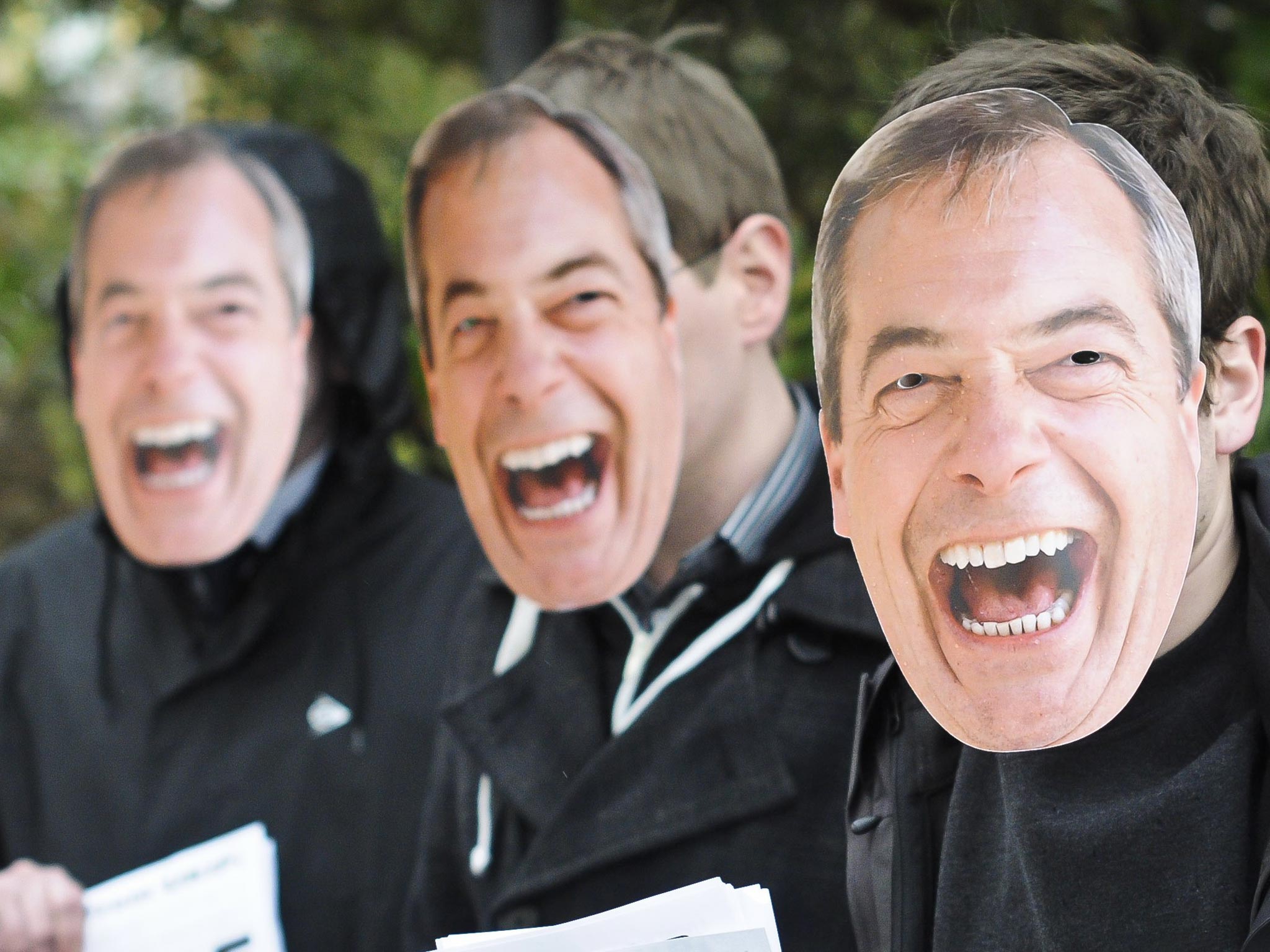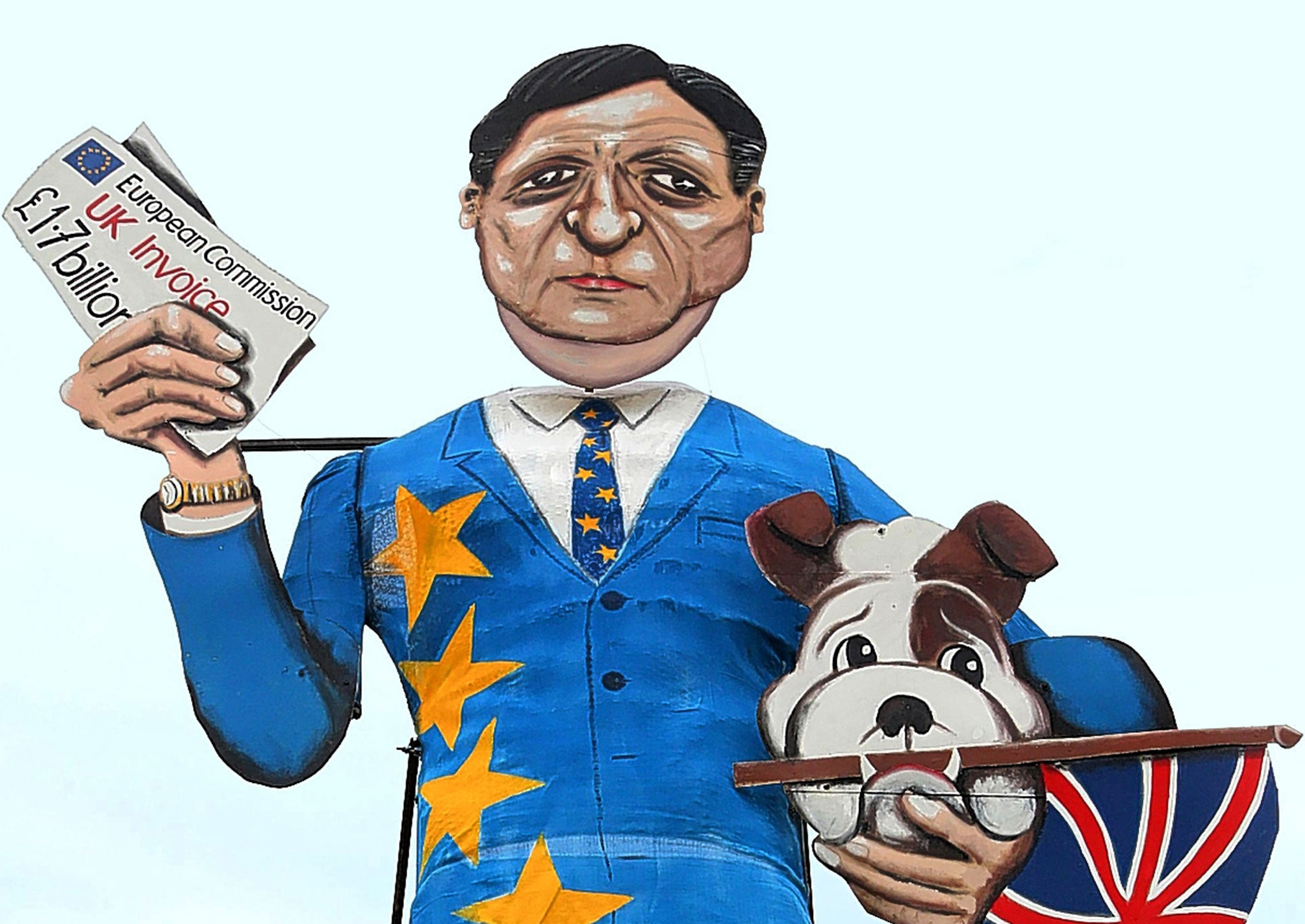David Cameron is in danger of becoming a poor impression of Nigel Farage
What is wrong with the prime minister siding with a UK business community that is overwhelmingly pro-EU?


On Saturday night in Edenbridge, Kent, they will burn an effigy of Jose Manuel Barroso, the outgoing president of the European Commission. In the same county, in Rochester, in two weeks, they will go to the polls in a by-election forced by the defection of their Tory MP, Mark Reckless, to the anti-European UKIP. According to the latest polls, Reckless has a 13-point lead and is on course to win.
Anyone observing Britain could be forgiven for supposing that’s it for our membership of the EU, that the nation represented by the people of Kent, “the Garden of England”, had spoken and we must exit. Certainly, if they included the behaviour of the Prime Minister they would have added evidence for their conclusion. As the Rochester ballot has neared, so has David Cameron’s anti-EU rhetoric amplified.
Ukip’s rise has pushed him into a corner. Since Ukip’s victory in Clacton, the result of another defection, his posturing has become ever more theatrical. By delicious timing he’s been aided by the EU’s imposition of a £1.7 billion surcharge on the UK.
On it goes, the great battle over Europe. But increasingly it resembles a fight being fought in a pub with two rooms. In the rear, in the snug, all hell is breaking loose, chairs and glasses are being thrown, tables overturned. Meanwhile, in the bigger, main bar, drinkers are quietly supping their ale and getting on with their lives. Unfortunately, it’s the mob in the back that will get the entire pub closed down.
A recent IpsosMORI poll found that support for staying in Europe had reached a 23-year high. Some 56 per cent of people say they would vote to stay in the EU in a referendum, versus 36 per cent who want to leave.
Meanwhile, the business community, in industry and the City, is overwhelmingly in favour of continuing membership. Two pro-EU lobby groups - Business for New Europe, and TheCityUK - enjoy heavyweight support. Business for New Europe can count on the likes of BAE Systems, WPP, London Stock Exchange, BT Group and Royal Bank of Scotland; TheCityUK includes among its members, Goldman Sachs, JP Morgan, Bank of America, Citigroup, Deutsche Bank, and BNP Paribas.
It’s impossible, where business is concerned, to think of a company that can rank alongside the firepower in the pro-EU camp. The only large corporate that comes to mind is Next, which is headed by the Tory peer Lord Wolfson. But compared with the outpourings of Nigel Farage, the Ukip leader, Wolfson’s views seem soft, more Eurosceptic with a Europhile tinge.

Wolfson, for instance, is on record as saying that he wishes the No campaign would focus on replacing the EU with a free trade zone, in the spirit of Hong Kong or Singapore. He’s worried that the whole debate in the UK has become focused on greater protectionism and xenophobia.
What’s depressing is that Cameron does not take strength from the opinion poll, does not listen to the wise heads of business, upon so much economically depends, but instead chooses to dance around the bonfire with the more extreme folk of Kent.
A stronger, more confident-in-his-own skin leader would by now be striking out, setting a firm course for Britain that would involve remaining within the EU but with necessary reforms. That is what the Prime Minister is thought to desire; it’s certainly what the poll suggests the majority of the population prefer; and it’s definitely what big business craves.
But he cannot bring himself to articulate it in clear, forceful terms. Rather he is in danger of becoming a poor impression of Farage, erring too much on the side of Euro-hostility than rapprochement and warmth.
Of course, he will say he is forced to take this stance because of the rise in UKIP, and, don’t you know, there is a general election in the offing. In the Tory manifesto there will be a statement of intent regarding a referendum. Once the election is out of the way, that’s when he will he crank up the reform-from-within argument.
But will he? On seemingly a daily basis at present he is driving a wedge between us and the EU, constantly bashing his fellow leaders. If it’s not the £1.7 bill, which is peanuts, whatever he says, when set against the overall public spending budget – and besides it’s something we’d signed up to pay – it’s the EU holy tenet of immigration and the free movement of people.
Again, the surveys do not provide the ammunition he seeks. Britain is not awash with free-loading, EU benefit claimants. The latest study found that immigrants from the 10 countries that joined the EU in 2004 contributed more to the UK than they extracted in benefits. University College London said they added £4.6 billion more in taxes than they took out in public services.
What was the Government’s response? It could have welcomed it and used it to pour scorn on UKIP. But no, it chose to query the report.
The Immigration Minister James Brokenshire said it was too narrowly targeted apparently. “It [the report] has not properly addressed the issues of the pressures of public services,” he said. “There's things that I think rightly concern the public on access to schools, hospitals, roads, housing.” Close your eyes and that could easily have been a Kent fire-raiser or UKIP member speaking.
By constantly picking a fight with the EU, Cameron validates the anti-EU ideal. He’s giving credence to Farage and his colleagues – all the time providing a backbone to their movement. It’s as if he is doing their scrapping for them in Brussels, even driving the German chancellor to exasperation, pressuring Angela Merkel into saying she would consider Britain leaving the EU rather than change the rules on free movement of workers.
Cameron is in the EU leaders’ drinks party, on his own in a corner, nobody talking to him let alone embracing him. He’s isolated, while, Farage is standing behind the door, hand over his mouth, sniggering at his plight.
The Prime Minister should ask himself: who runs Britain? Is it the bonfire burners of Kent and UKIP or is it the less strident majority and those companies that invest in this country, providing jobs and driving our growth?
Those who fuel the flames licking Barroso’s feet tomorrow night may think it funny, but Britain’s weakening place in the EU and the weakness of its premier cannot be laughed off so lightly.
Join our commenting forum
Join thought-provoking conversations, follow other Independent readers and see their replies
Comments
Bookmark popover
Removed from bookmarks